|
Midland Tar Distillers Limited
The company, one of the
first British tar distillers, was founded in 1857 by
John Clarkson Major who developed pioneering technology
for the distillation of tar. He was born in
Flamborough, Yorkshire on
22nd March, 1826 and educated at Wesley College in
Sheffield, from where he proceeded to London to complete
his education in chemistry. He started his business
career in Chester, and then moved to Wolverhampton where
he became a successful manufacturing chemist, and Mayor
of the town. |
|
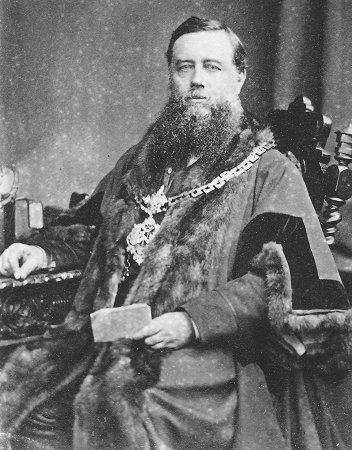
John Clarkson Major in his mayoral
robes. |
He founded Major & Company Limited with his partner
E. L. Turner, alongside the canal in Wolverhampton to
distil a range of products from coal tar, a by-product
from the local gas works.
Coal tar is a by-product of
the carbonisation of coal and is produced by heating
coal in a closed retort. Approximately 10 to 15 gallons
of coal tar were produced from each ton of coal. The tar
was transported from the gas works by canal boat.
Major based his process on German technology and
produced a wide range of products including:
creosote, disinfectants, foundry pitch, liquid fuels, naphthas, protective coatings, road tars, and solvents.
John Clarkson Major married Elizabeth Jones (from
Chester) in 1859, and they had one son, John Lewis
Major, born in 1861. |
| Around 1870 the family moved in a
large house in Bhylls Lane called 'The Bhylls',
later known as 'Bellencroft'.
It was purchased
from local brewer William Butler who moved into 'The
Cedars' on Compton Road. |
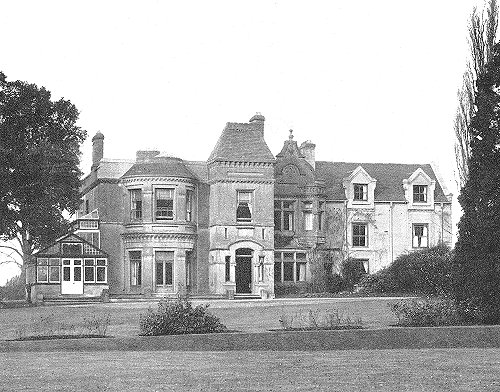
The Bhylls. |
| In November 1875
Major was elected Mayor of Wolverhampton, and became
Chairman of the Sanitary Committee, an important
role which oversaw the provision of a clean water
supply, and proper drainage in the town. He died at
the Bhylls on 21st December, 1895, after which his
son took over the running of his company.
On the 1881 Ordnance Survey
map the site is shown in two halves, the upper half is
marked as a chemical works, which would have been
Major & Company Limited, and the lower half an iron tube
works, which was Edwin Lewis' gas tube factory.
It appears that at a later date the whole site was
occupied by the tar distillery. Business flourished, and
several depots were opened in different parts of the
country. In 1921 the firm joined Midland Tar
Distillers, with a head office at Oldbury. In 1969 the
company became part of the Burmah Castrol Chemicals
Group. |
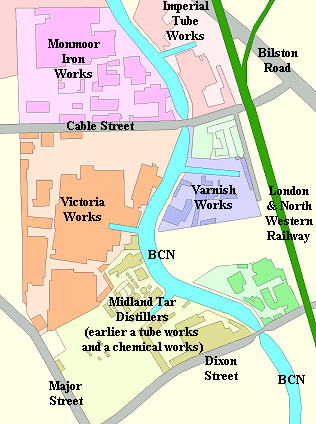 |
In the late 1950s the
Midlands Electricity Board (MEB) obtained the site and
built their offices, stores and workshops along the
Major Street boundary. The building company, T &
G Construction, a part of Tarmac, ended-up constructing
the buildings on concrete rafts because it was said at
the time that the ground was a sort of tar lake. The
original buildings along Dixon Street were converted
into garages for the company's vehicles, stores and
workshops. The MEB disappeared in the late 1990s as
part of the reorganisation of the industry. As a result
the Major Street site closed and remained derelict for
many years. In 2005 the site was cleared to make way for
a public park. Luckily, thanks to Sue Whitehouse, the
City's Conservation Officer, we were allowed access onto
the site to photograph the buildings just before
demolition. Some of the photographs can be seen below.
|
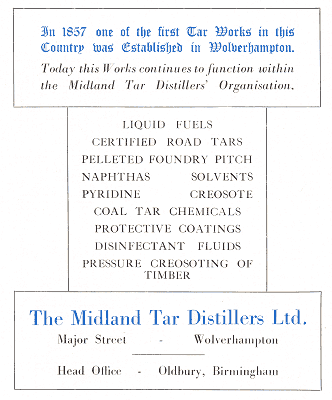
An advert from 1949.
| A page from Wolverhampton
Education Committee's Guide to Careers and Leisure.
Published in 1967. |
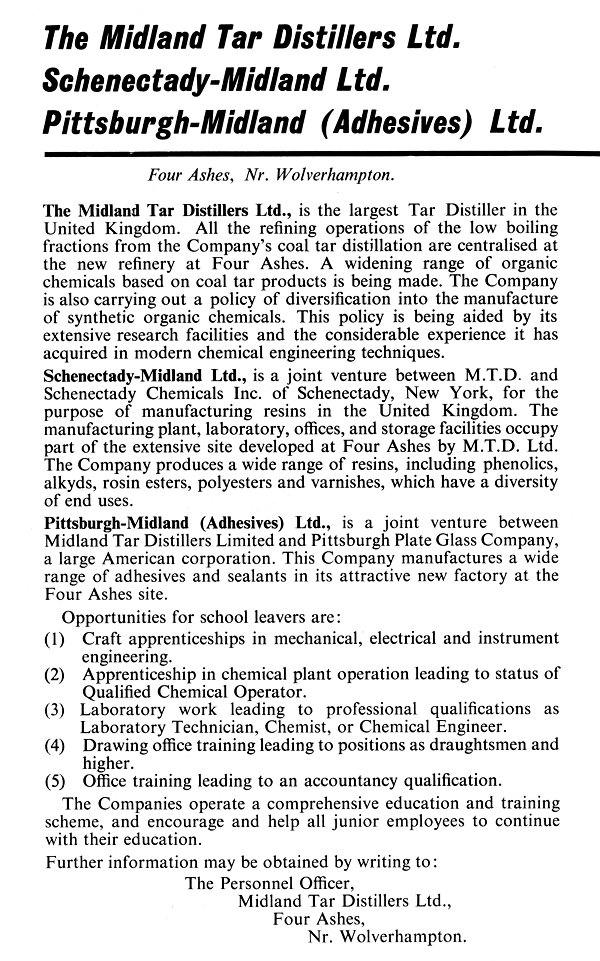 |
| The view of the buildings from
Dixon Street in October, 2005. |
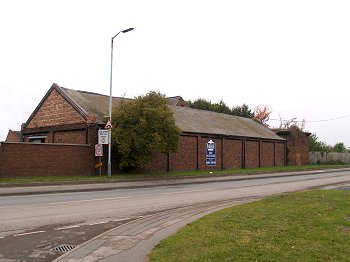 |
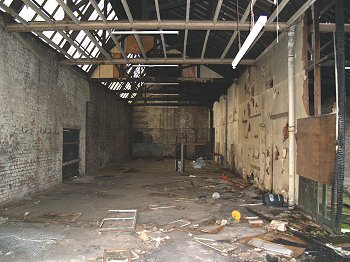 |
The interior of the other
building. |
|
A rear view of
the MEB buildings, just prior to demolition. |
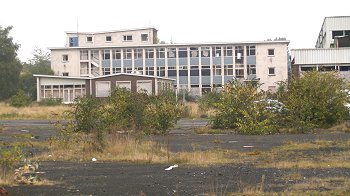 |
 |
Return to the
previous page |
|